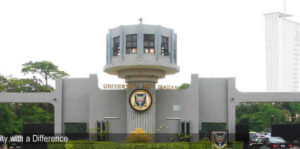
- This project has passed.
THE PAST AND FUTURE OF AFRICAN DEVELOPMENT
THE PAST AND FUTURE OF AFRICAN DEVELOPMENT
Start time:
April 8, 2019 - April 10, 2019
EDT
Location:
University of Ibadan, Ibadan, Oyo
Type:
Workshop

Local Partners
Description
THE PAST AND FUTURE OF AFRICAN DEVELOPMENT:
RETHINKING AFRICA’S ECONOMIC TRANSFORMATION
University of Ibadan, Nigeria
10th – 12th April 2019
The debate around Africa’s development has been driven most prominently from outside the continent, preserving a de facto colonial status, while ignoring the complexity of its context. With development economics being more recently influenced by the World Bank and other multilateral institutions, corresponding policy recommendations have been imposed on African countries through conditionality for loans, grants and foreign direct investments. Concerns around these countries’ sustained specialization in commodities, uneven trade relations with the rest of the world, sustainability of its touted growth, premature de-industrialization and alarming rate of migration, have also prompted strong recommendations from the international community. But these recommendations have taken a simple approach to development such as the promotion of regional trade integration and liberal democracy, presumed to correct the uneven development that obtains both within the continent and with other regions. However, such conversations ignore discussions around historical sources of technological change, issues of distribution and ownership structures of wealth, financialization, labour and wages, imperfect competition with multinationals and monopolization by large scale corporations, among others. For this reason, development approaches for Africa are deemed deficient in their potential to deliver needed progress, prompting calls for re-thinking the continent’s development agenda.
This Call for Papers is aimed at re-visiting the debate on Africa’s development by drawing on alternative theories of growth including history of African economic thought. We invite submissions from young scholars using pluralist approaches, particularly with context-specific considerations of analyzing economic development in Africa. Papers should aim to broaden the conversation on the causes of Africa’s lingering underdevelopment, radically challenge the existing development paradigm for Africa, provide innovative approaches to achieving its development while providing bold recommendations for policy. Submissions can be made to the Africa, Economic Development or History of Economic Thought working groups, under the following broad themes:
- Alternative theories of economic development
- Industrialization and structural transformation
- Inequality and income distribution
- Monetary policy, financial development and infrastructure financing
- Institutions and the role of multilateral organizations
- History of (African) economic thought and implications for Africa’s development
- Agrarian change and gender in Africa
Selected papers will be considered for publication in a Special Issue. A collection of papers that unravel the history of African economic thought will also be invited to contribute to another Special Issue which kick-starts a project that aims to show the contribution of Africans to economic thought. Papers that provide innovative development ideas for the African policy space will be given preference. The conference will host a publishing workshop for the Special Issue and to help young African academics develop their research for publication.
Limited travel grants are available for participants from other African countries. Applicants are expected to submit a 500 word abstract. Those applying for funding should also send a 1500-2000 word summary of their paper.
Key Dates
15th of January 2019 – Extended Deadline for submissions
30th of January 2019 – Confirmation of acceptance and funding
15th of February 2019 – Deadline for sending full papers (8,000 to 12,000 words) for funded participants and those wishing to be considered for the proposed Special Issues.
28th February 2019 – Deadline for confirmation of travel arrangements and attendance.
Collaborators include YSI Africa, Economic Development, History of Economic Thought Working Groups, University of Ibadan, Africa Regional Centre for Information Science, and the Nigerian Institute for Social and Economic Research (NISER).
About YSI
YSI is a subsidiary of the Institute of New Economic Thinking (INET), set up with the objective of fostering conversations among young scholars in economics and related fields. With over 9000 members globally, it serves as a home for a new generation of thinkers – an open environment for thought and inquiry. Our programs provide mentorship and resources to further the understanding of the economy.
The Africa Working Group of YSI aims to create a vibrant platform for advancing the discussion for research focused on Africa. In line with New Economic Thinking, we aim to join the debate on the development of Africa using a pluralist approach, within the broader context of its history and social context. This is achieved through discussion groups, seminar presentations, conferences and academic publications, engaging other YSI working groups and research bodies in order to achieve a robust conversation around the continent’s development.
Contact emails: Africa: [email protected], Economic Development: [email protected], History of Economic Thought: [email protected].
Abstracts should be submitted to [email protected] by 15th January 2018.